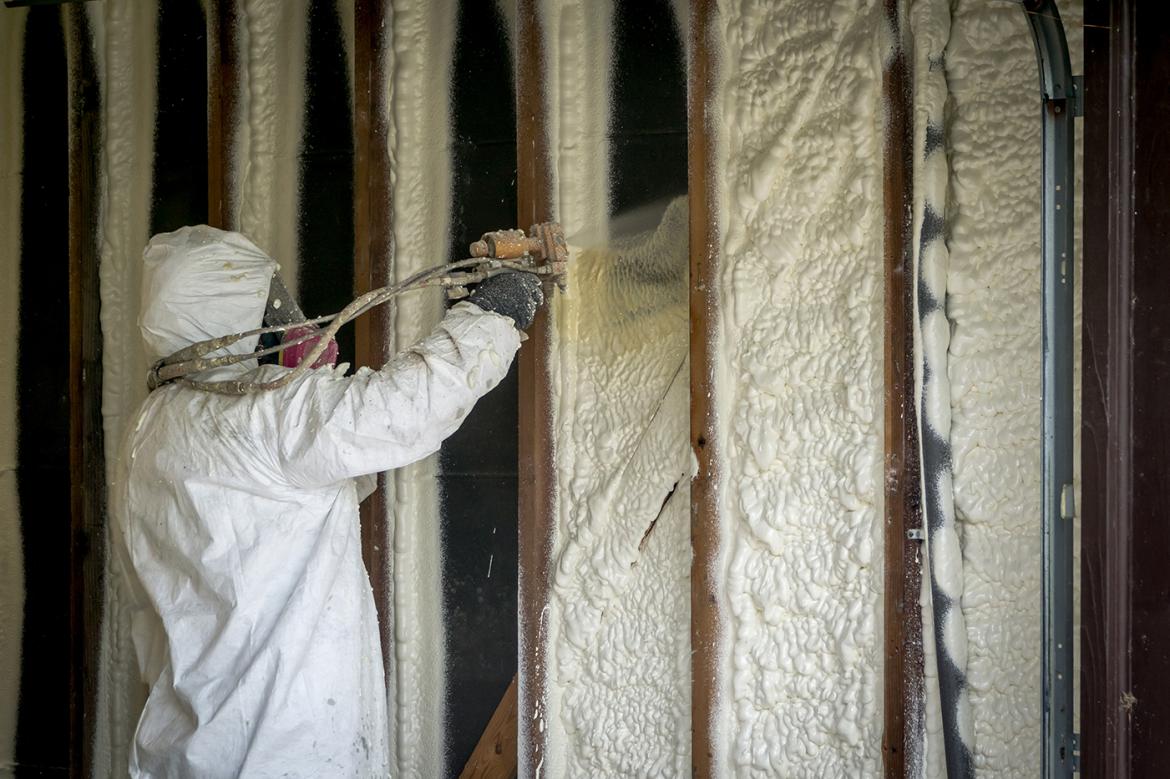Insulation 101: What You Need to Know

Did you know that closed-cell spray foam insulation can be used as a vapour barrier and has a higher R-value than open-cell SPF?
Insulation technicians and building contractors can sometimes use terms or talk about utterly foreign things to our average ears. If you’re wondering what an R-Value is, or what the difference is between open-cell and closed-cell spray foam insulation, keep reading as Okanagan Insulation Services explains the basics and answers your questions.
What is Insulation Used For?
Insulating products are needed to keep temperatures inside your home or building consistent. They also help to block moisture and keep pests from permeating your building. Added to your home's walls, floor, and roof, insulation prevents cold air from moving out and warm air from moving in during the summer—and vice versa in the winter—helping neutralize the interior's climate. This is especially helpful in the sometimes extreme cold and hot temperatures experience here in the Okanagan.
How Does Insulating your Home Save You Money?
Insulating your home is one of the most cost-efficient ways to reduce your heating and cooling bills. You can also reduce future maintenance costs, as insulating products such as spray foam insulation can prevent pests from entering your home and also act as a vapour barrier against moisture and mould.
Did you know that when you have insulation products professionally installed, you can save money by applying for BC Hydro and Fortis BC rebates?
What are the Different Types of Insulation?
There are many types of insulation, but the most common types include:
- Batt and poly
- Loose-fill or blown-in insulation
- Spray foam
- Thermal acoustic
What is an R-Value?
An R-value is a measurement that calculates thermal heat resistance, or how much heat can permeate a material. It can be attributed to both insulating materials and even physical structures such as walls and windows. An R-Value can also relate to how thick an insulating product is. Higher R-value insulating products allow less heat flow and tend to be used in colder climates. However, different parts of a house or building, such as the roof or attic, may require varying R-value insulating products.
How Does Spray Foam Work?
Spray polyurethane foam, or SPF, is a heat-activated plastic polymer sprayed into walls, floors, and ceilings. It is often used in attic insulation as it seals corners, cracks, and crevices, preventing air from escaping and pests from entering.
What is the difference between open-cell and closed-cell SPFs?
Due to its chemical structure, open-cell SPF tends to be more flexible and softer than closed-cell spray foam. It is also less dense and has a lower R-value than closed-cell SPF, which expands to approximately one-inch thick when sprayed. While open-cell SPF tends to be used in hard-to-reach places, such as cracks and nooks, closed-cell offers superior protection in colder climates and serves as a vapour barrier. Unlike open-cell, It can be used on both interior and exterior surfaces.
For more information, read our article on How to Deter Pests with the Right insulation.
Okanagan Insulation Services works with home and business owners and building contractors to provide the best quality insulating products and installation found in the Okanagan Valley. Contact us to find out how we can help with your project.